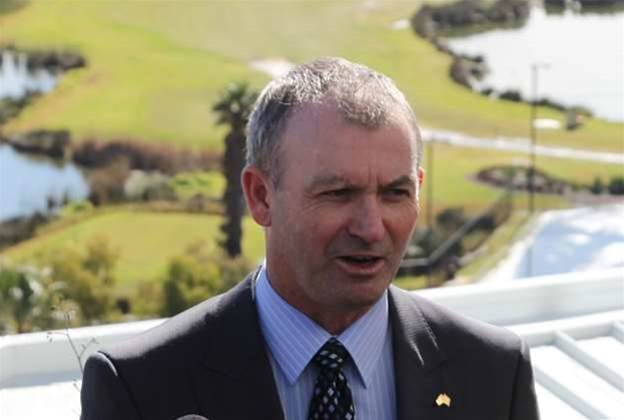The Western Australian government has admitted "systemic" IT issues plague the state's health department after an auditor-general's report detailed massive cost blowouts and mismanagement of the agency's centralised computing contract with Fujitsu.

Late last week the WA auditor-general revealed the four-year, $45 million contract had blown out by $81.4 million owing to a lack of proper oversight and controls.
The department is facing a potential corruption investigation over the issue after the case was referred to the state's Corruption and Crime Commission for investigation.
The Fujitsu deal was signed to provide primary and secondary data centres as well as ongoing management and support, but the auditor found the contract had been varied 79 times since it was signed in 2010.
Around half of the $81.4 million in contract extensions were made by staff that weren't authorised to make such decisions, and involved the purchase of things like extra network switches that weren't being used.
Those employees had since been sacked, WA health minister Kim Hames said last week.
In parliament last week, government MP Graham Jacobs admitted there were "serious systematic issues within the Department of Health".
"[It is] very clear that there have been serious breaches in management," Jacobs said.
"This is not my money and this is not [the health minister's] money; it is the taxpayers of Western Australia’s money. We have a responsibility to look at these systemic issues and problems."
He said the department "had no idea" what it wanted or what it was getting from the contract.
"One of the really bad and sad issues around this is that the government spent all this money, and if that was not bad enough, there is a significant unused component of what was bought," Jacobs said.
"The government has a place in Malaga that is stacked with racks ... that it is not even using because the health department did not set out a capacity business plan for what it needed and make that fit."
Jacobs - chair of the state's education and health standing committee - implored the health minister to "bring some of the systemic issues to account".
"We must ensure that these management deficiencies, spending a huge amount of taxpayers’ dollars, are reined in and that the systemic issues are addressed. We need to do that as a responsible government," he said.
Health minister Kim Hames admitted IT had been a "major headache" for government for a long time and said the bungled Fujitsu contract was "not acceptable".
"It is not just Health in which ICT is a major issue, but across the whole of government. That will increasingly be a challenge for not only our government but also successive governments to come as the capacity and development of ICT changes almost beyond control," Hames said.
He said WA's new whole-of-government chief information officer Giles Nunis had been employed to give the state better oversight and control of IT issues.
The health department is still yet to appoint a permanent chief information officer, late last year beginning the search for its first full-time CIO in five years.
Opposition calls for minister to resign
The state's Labor opposition MPs said the Health IT saga was just the latest episode in a line of IT failings, and called on Hames to resign.
The Labor MPs pointed to serious problems with the IT systems and infrastructure at Fiona Stanley Hospital as well as a damning 2010 audit report on patient administration systems as a "pattern of behaviour and systemic failure" under Hames' watch.
Labor MP Roger Cook said while it was not the minister's responsibility to "look over the shoulders" of department staff on a daily basis, he was responsible for Health's overall management.
"This is negligence on a scale that has cost WA taxpayers many tens, if not hundreds, of millions of dollars if we include the patient administration system overruns, the ICT overruns at Fiona Stanley Hospital, and now this latest debacle of the centralised computing services contract," Cook said.
"The auditor-general is finding the exact same mistakes, the exact same inadequacies and the exact same oversights. We know that there has been a revolving door of directors general and acting directors general in this minister’s time, but we have had only one minister.
"... when a minister has this latest report that provides chapter and verse the very same criticisms that were made of him in 2010 and he has done nothing about them, that is reason to resign.
"It is time for him to be sacked. It is time for him to go."
Labor MP Rita Saffioti labelled Hames' handling of the department "basic negligence".
"It not as though the information and communications technology risk was a shock that came from nowhere. There was warning after warning," she argued.
"The whole of the ICT system is broken. He has had alarm bells but he has not done anything. He has not put his hands on the wheel."
Hames argued the auditor-general had only conducted the investigation after being asked by the government.
He said not only had he not been aware of the actions of the individuals making the unauthorised purchases, neither had successive directors-general of the department.
"Nobody was aware that these individuals were going beyond their authorised contracts," Hames said.
"It was a clear failing of those in a level above them that ... somebody did not pick up that these contracts were being authorised beyond the authorised powers of the person who provided them. Therein lies the failing."
Two of the auditor's six recommendations for the health department had already been implemented, Hames said, and the other four would be completed within the auditor's suggested timeframe.


.png&h=140&w=231&c=1&s=0)

_(22).jpg&h=140&w=231&c=1&s=0)




_(26).jpg&w=100&c=1&s=0)

 iTnews Executive Retreat - Security Leaders Edition
iTnews Executive Retreat - Security Leaders Edition












_(1).jpg&h=140&w=231&c=1&s=0)



